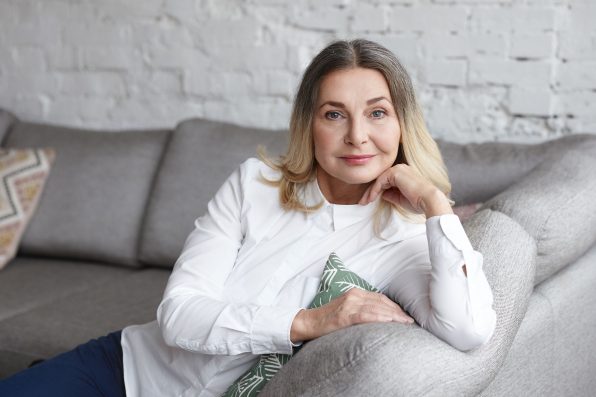Coping With “Gray Divorce” Is Tougher On Women Over The Age Of 50 Than Men, And Women Are More Likely To Use Antidepressants, According To A New Study

A new study conducted by researchers in China suggests that coping with a “gray divorce” can be tougher for women over 50 compared to men.
The findings revealed that older men tend to move into new relationships more smoothly following the end of a late-life marriage and are also less likely to use antidepressants than their female counterparts of a similar age.
The study did note a rise in the use of antidepressants among both genders in the period before and just after a divorce, separation, or the passing of a partner. Still, the consumption of these medications was higher among women than men.
These results underscore the rising “gray divorce” trend in wealthier nations, which is attributed to aging populations and a surge in re-partnering. Additionally, the findings show that depression in older adults is relatively prevalent, with an estimated 10% to 15% of those over 55 experiencing clinically significant symptoms of depression.
The researchers analyzed 228,644 people between the ages of 50 and 70 who had gone through a divorce, breakup, or the loss of a partner, focusing on the effects of starting a new relationship among those who did. Out of this group, 53,460 people entered a new relationship within two to three years.
Within this group, men were more likely to find a new partner after the loss of a spouse or the end of a relationship compared to women. Antidepressant use also increased for both men and women around the time of a partner’s death or throughout the breakup process, with a more significant rise observed in women.
In particular, the study found that antidepressant use increased by roughly 5% in men and 7% in women during the six months prior to a divorce. Then, for breakups, there was a 3% rise in usage for men and a 6% rise for women.
Men generally reverted to their antidepressant usage levels from before the breakup within a year; meanwhile, women’s use continued to escalate from the first year.
Now, the researchers did observe a modest decline in antidepressant usage among individuals who entered new relationships. But, this decrease was short-lived, with usage returning to prior levels or rising again two years afterward.

shurkin_son – stock.adobe.com – illustrative purposes only, not the actual person
So, the team proposed that the more significant effect of separations on women’s mental health could stem from the increased social and emotional responsibilities they shoulder, such as navigating the complexities of blended family dynamics.
“The greater increases in antidepressant use associated with union dissolution among women in our study may indeed relate to the fact that the costs of union dissolution on mental health fall more heavily on women than men,” concluded Professor Yaoyue Hu of Chongqing Medical University.
“The smaller declines in use associated with re-partnering in women than in men may be related to the explanations that marriage benefits men’s mental health to a greater extent than women’s, and older men are more likely than women to seek emotional support from re-partnering.”
To read the study’s complete findings, which have since been published in the BMJ Journal of Epidemiology and Community Health, visit the link here.
Sign up for Chip Chick’s newsletter and get stories like this delivered to your inbox.
More About:Science





